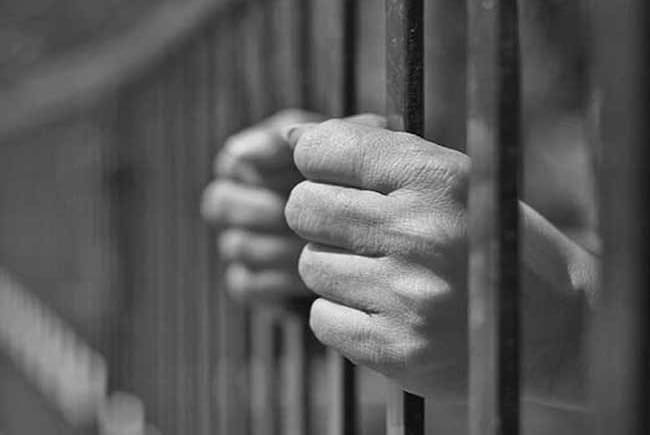
Representational Image
Washington:
The US state of Georgia executed its oldest death row inmate Wednesday, just days before his 73rd birthday, in a move critics denounced as emblematic of capital punishment's excesses.
Brandon Jones received a lethal injection at a state prison in Jackson, a corrections spokesman told AFP.
The African American man had spent more than 36 years behind bars for the 1979 murder of a white convenience store clerk.
His lawyers had launched last-minute appeals to halt the execution, including with the US Supreme Court, but they were rejected.
Critics point to his case as an example of the "double punishment" faced by some death row prisoners -- spending decades in solitary confinement with no prospects but death.
Supreme Court Justice Stephen Breyer spoke out last year against "unconscionably long delays that undermine the death penalty's penological purpose."
Death penalty opponents note that many death row inmates were sentenced to death at a time when they lacked a satisfactory defense system and that if they were tried today, the outcome would be different.
"Jones's case raises questions of proportionality and discriminatory application of the death penalty," the Death Penalty Information Center said in a statement.
"He and his co-defendant Van Solomon -- both African American -- were sentenced to death... for killing a white gas station store clerk during a robbery.
"Jones denies shooting the clerk and prosecutors never determined who fired the fatal shot."
Solomon died on the electric chair in 1985.
A judge had ordered Jones to be resentenced because jurors had a Bible in the room during deliberations over his punishment.
During the decades he spent behind bars, Jones read a lot and become known for his writings on prison life and issues of race.
There are now 75 men on death row in Georgia, which suspended executions for several months in 2015 in response to a controversy over the drugs used in its lethal injections.
The United States executed 28 people last year, the lowest number since 1991.
Brandon Jones received a lethal injection at a state prison in Jackson, a corrections spokesman told AFP.
The African American man had spent more than 36 years behind bars for the 1979 murder of a white convenience store clerk.
His lawyers had launched last-minute appeals to halt the execution, including with the US Supreme Court, but they were rejected.
Critics point to his case as an example of the "double punishment" faced by some death row prisoners -- spending decades in solitary confinement with no prospects but death.
Supreme Court Justice Stephen Breyer spoke out last year against "unconscionably long delays that undermine the death penalty's penological purpose."
Death penalty opponents note that many death row inmates were sentenced to death at a time when they lacked a satisfactory defense system and that if they were tried today, the outcome would be different.
"Jones's case raises questions of proportionality and discriminatory application of the death penalty," the Death Penalty Information Center said in a statement.
"He and his co-defendant Van Solomon -- both African American -- were sentenced to death... for killing a white gas station store clerk during a robbery.
"Jones denies shooting the clerk and prosecutors never determined who fired the fatal shot."
Solomon died on the electric chair in 1985.
A judge had ordered Jones to be resentenced because jurors had a Bible in the room during deliberations over his punishment.
During the decades he spent behind bars, Jones read a lot and become known for his writings on prison life and issues of race.
There are now 75 men on death row in Georgia, which suspended executions for several months in 2015 in response to a controversy over the drugs used in its lethal injections.
The United States executed 28 people last year, the lowest number since 1991.
© Thomson Reuters 2016
Track Latest News Live on NDTV.com and get news updates from India and around the world

